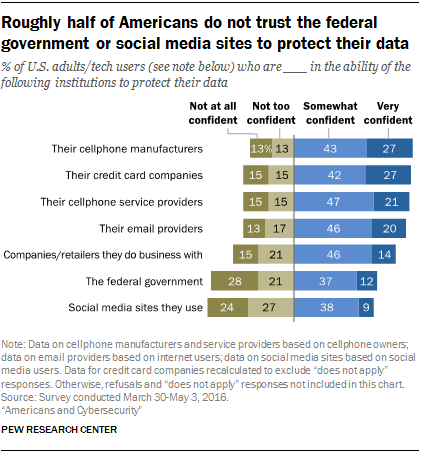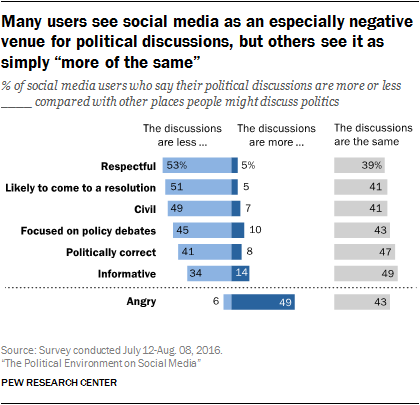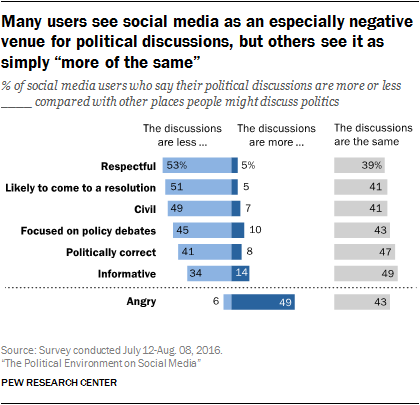Tax evasion – how much are accountancy firms part of the problem? Prem Sikka highlights creative tax schemes of the Big Four auditors that the courts repeatedly reject and asks why there is no consequence. It is no surprise that the four biggest companies – Deloitte, PricewaterhouseCoopers, KPMG and Ernst & Young – generated $17 billion not from auditing, but from consulting, posing a possible conflict of interest. Should the companies’ consulting arm break up from their auditing business, as some regulators suggest?
After the Panama Papers scandal which implicated a number of Indonesian political families, the government passed a decree requiring all companies to disclose beneficial owners and those rules came into effect last month. Now the country is also set to join the Automatic Exchange of Information initiative by the end of the year. However, the country has also been supportive of G77 and South Center efforts to strengthen Southern voices in the global tax debate – does falling back on OECD platforms signal stalled momentum on alternatives?
Bermuda is also broadening its beneficial ownership regime through stronger regulations and Green Members of the European Parliament called on French President Emmanuel Macron to place tax justice “at the heart of Europe’s future.” Specifically, the group is demanding progress toward Public Country-by-Country Reporting and a Common Consolidated Corporate Tax Base. Elsewhere, Tax Justice Network outlines why women are differently and disproportionately disadvantaged by illicit financial flows, and ODI offers six useful readings on public finance, tax and development.
World leaders from throughout the Americas commit to curbing systemic corruption at the 8th Summit of the Americas in Lima. The Lima Commitment (“Democratic Governance Against Corruption”) contains 57 measures to promote transparency and accountability, including protection of journalists and whistleblowers, open procurement, and stronger independent judiciary to prevent impunity. (Read the full declaration here.) Grand words from Argentine President Mauricio Macri: “One of the biggest challenges we face in the region is the relationship between corruption, democracy and sustainable growth. Experience shows us that where democracy is weak, corruption increases, where inequality persists, corruption takes root.” We’ve heard such words before, so how to ensure implementation of these measures and to connect these steps to an evolving global conversation as Joe Powell has argued? What if OGP members in the region integrate these 57 measures into their national action plans?
Research by the OECD meanwhile offers a new different approach to anti-corruption – drawing from behavioral science to shape integrity policy making. Speaking of integrity, Global Integrity has released the provisional data for its 2018 edition of the Africa Integrity Indicators. Feedback is welcome until May 30. Is there any correlation between such indicators and where public frustration mounts to force change? (We welcome bets on the next government leader to be added to our list of those forced out over corruption.)
While the Lima Commitment highlights the importance of civil society and access to information in the fight against corruption, many governments continue to restrict freedoms. In Nigeria, CSOs condemn the government’s harassment and demand for the release of imprisoned civil society leaders. In Australia, a bill seeking to reform political donations is feared to target charities and CSOs. In Tanzania, you now have to pay over $900 a year to be a blogger, as part of the government’s increasing grip on media and social media. Highlighting the tension that can arise over transparency demands, the US has urged a repeal of Ukraine’s asset-declaration system, found to be excessive and placing an undue burden on civil society groups. More encouragingly, check out Dejusticia’s documentation of how human rights organizations respond to shrinking civic space in the populist context.
Repressive laws are certainly part of the toolbox of illiberal leaders in Central Europe, but so are rhetorical devices. Michael Abramowitz and Nate Schenkkan claim that illiberal leaders are attempting to redefine what it means to be a citizen and live in a democracy, and in turn weaken the concept that pluralism of identities and opinions within a society is normal and even beneficial. Can civil society beat illiberalism? Hear insights from 16 experts.
Demagoguery is amplified online, and Anne Applebaum is worried at the fast spread of Russian-style tactics and searches for answers – do we need to limit anonymity online for those posting news, institute transparency around video editing tools?
To bot or not to bot? In past TAI Weekly issues, we have featured stories on how AI and machine learning can threaten democracy. By 2020, 80 percent of daily interactions will be with bots according to Gartner research. But before nonprofits start joining the bandwagon, Allison Fine and Beth Kanter argue for a human-centered approach. First step? We need to have discussions within our organizations and sector on the ethical use of bots for social good. In the US, the nonprofit AI Now is urging the government to regularly monitor and assess its use of algorithms.
In light of the recent Facebook privacy breach scandal, Vox unpacks the concept of data rights as civic rights and proposing it as a participatory framework for GPDR in the US. But how exactly do Americans feel about social media and privacy? It’s complicated, according to the Pew Research Center (see graphics below). And do not be surprised by the way if you’ve been receiving notifications from social media platforms about new privacy policies. This is prompted by the impending implementation of the EU GPDR in May. What would it mean for non-EU residents? Lucy Bernholz shares her take.


Twitter has followed Facebook’s footstep toward transparency in online political advertising in the US. Social protection programs also should be transparent, argues Rasmus Jensen Schjodt. Also, here’s an interesting twitter thread (including TAI members) on the merits of open data and in combination with human-centered design and problem-driven approaches.
We have not had a new index in a while, so happy to see two arrive this week, although less happy to read the governance findings in the Transformation Index. It highlights government failures to respond effectively to growing domestic tension. Protests against mismanagement, inefficiency (especially regarding the lack of a coherent anti-corruption policy) and a system of patronage are too often mobilized along existing ethnic, religious or social cleavages. The Responsible Mining Index offers more positive elements in its assessment of 30 mining companies. We were struck by the value of external requirements in encouraging corporate disclosures and at the progress still needed on releasing data in open formats. For more on data and technology informing decision-making around natural resources, check out Resource Watch.
We are encouraged to see policymakers in Europe taking a growing interest in philanthropy as tracked by Barry Hoolwerf. There is more potential to build on, including bridging data/research and public policy. Grant Foundation shifted its strategy to support grantees to better understand how evidence can influence actual policy and practice. What about research on grantees not making it into the hands of foundation leaders? In the UK, a new model is proposed – an online survey asking charities and their donors on their research priorities.
Other helpful resources: tips on how charities can prevent ransomware, a (paid) webinar series on critical functions for non-profit leaders, and 22 must-read research reports for the non-profit sector. Impact Support has a set of online tools for charities and social enterprises that includes a data self-diagnostic. This website offers resources on designing for behavior change and barrier analysis – intended for application in low-resource, traditional development sectors (sanitation, breastfeeding, girls’ education enrollment, etc.). Might there be insights for TAP behavior change? Knowledge management practitioner Luis Ortiz Echevarría talks about bridging adaptive management theory and practice.
TAI spotlight
- Hewlett, Knight, Koch Foundations, with other Funders, Will Support Independent Research on Facebook’s Role in Elections and Democracy – Hewlett Foundation, Omidyar Network and other funders create new initiative allowing independent researchers to access Facebook’s algorithms and data to study how to address misinformation and disinformation, and harness the social platform’s potential for democracy
- The Rise of Fake News and Social Media Manipulation in Latin American Politics – Listen to this conversation hosted by Open Society Foundations exploring the role of misinformation in upcoming elections in the region
- Moving Towards Procurement Data Use in Uganda – Uganda starts publishing procurement data using the Open Contracting Data Standard. Development Gateway supports the initiative, through a grant from Hewlett Foundation
Read our blog!
Learning Infrastructure: Connecting People, Ideas, and Practice
Our Approach to Contributing to and Learning from Evidence

Of potential interest…
- What Zuckerberg Forgot To Mention… Profiling – Privacy International talks about a danger that Facebook poses – profiling
- How One Nonprofit Identified Website Visitors by Traits – and Saw Fundraising Spike – Heather Joslyn on the value of data and developing personas for nonprofit work
- USAID Chief Unveils Major Organizational Shakeup – Restructuring for USAID including combining innovation, democracy, governance “consultancies” with “new customer service metrics.” Hmmmm
- Responsible Mining Index – Responsible Mining Foundation’s newest report is available for download
- Blockchain is Not Only Crappy Technology but a Bad Vision for the Future – Kai Stinchcombe offers a differing and pessimistic view on the value of blockchain in building trust
- Open Government Partnerships Adds Five New Local Governments to its Local Program – The newest additions include the Basque Country, city of lasi, South Cotabato, Kaduna State and Narino
- Journalism’s Deep Web: 7 Tips on Using OCCRP Data – OCCRP developed a new software to aid navigation of its 200 different data sets
- Where Has the Money Gone? This Isn’t Just the Deadweight Loss- Exploring Through the Public Procurement Perspective – Mr Pandey analyzes the problem with Nepal’s public procurement system
Calls
- DATAStrong: Building Resiliency in Civil Society through Data Skills – April 18
- IATI Data Use Fund – April 20
- Present or Lead a Session: MERLTech DC – April 30
- Open Society Foundations’ Building Social Base and Embeddedness Program – April 30
- Pakistan’s 1st SDG 16 Innovation Challenge– May 5
- A Call for Ideas Seeks Solutions to Curb the Spread of Misinformation – May 31
On the calendar
- The Value of Evaluations at the Hewlett Foundation (webinar) – April 19
- TicTec 2018: The Impacts of Civic Technology Conference– April 18-19 (Lisbon, Portugal)
- Fighting Corruption Is Dangerous: Ngozi Okonjo Iwaela Joins Us to Discuss the Story Behind the Headlines – April 20 (Washington DC, USA)
- On Think Tanks Course: Cutting-edge Communications for Research and Policy (oline) – April 24-July 3, 2018)
- Grantmakers for Effective Organizations National Conference – April 30 – May 2, 2018 (San Francisco, CA)
- OpenGov Week – May 7- 11
- RightsCon (human rights in the digital age) – May 16 – 18 (Toronto, Canada)
- OGP Global Summit 2018 – July 17- July 19 (Tbilisi, Georgia)
- The Future is Open: 5th International Open Data Conference – September 20-21, Buenos Aires
- Evaluation for More Resilient Societies – October 1-5 (Greece)
- 18th International Anti-Corruption Conference – October 22-24 (Copenhagen, Denmark)
- BigSurv18 – Spain, Oct 25-27 (Barcelona, Spain)
